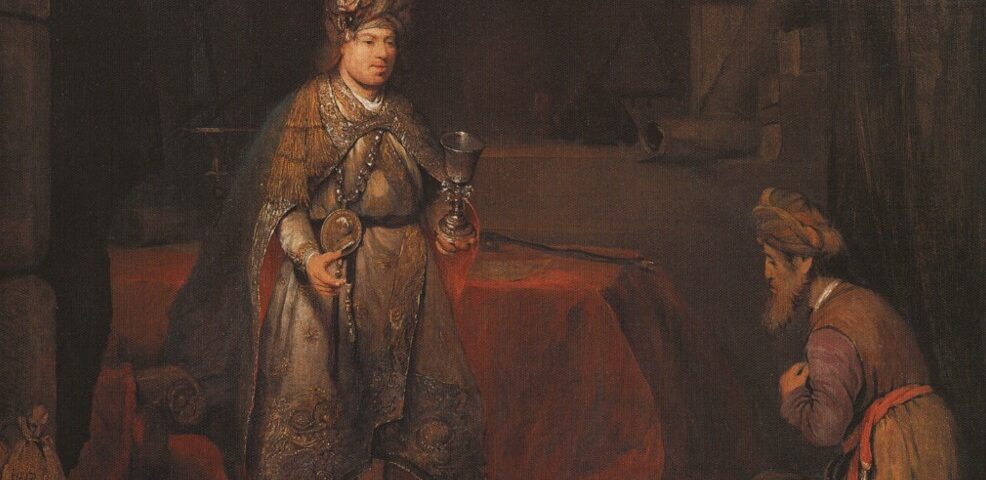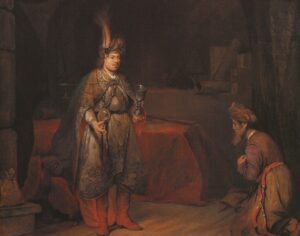Judah & Joseph

How could Judah convince an Egyptian official (unbeknownst to Judah, none other than the long-lost Joseph) to enslave an innocent man and let a convicted thief go free? Judah rises to the challenge magnificently. He claims that the vizier asked them many personal questions, and demanded that they bring down their youngest brother. Judah portrays the love that Jacob feels for Benjamin, and argues that if Benjamin does not return to Jacob, Jacob will die of grief, for their souls are entwined with one another. Overtly, Judah focuses on arousing compassion for his elderly father. Covertly, Judah compares himself to the Egyptian vizier. You wanted to see Benjamin on a whim and may not care about its lethal consequences. But I cannot bear the possibility of seeing my father killed by grief. How can the Egyptian vizier ignore either the overt appeal to his compassion or the covert reproof to his insensitivity? From Judah’s speech, Joseph now understood why his father never sought for him (Jacob thought Joseph was dead), and why Benjamin’s presence in Egypt did not imply that Jacob was dead (Judah served as surety for Benjamin).
Joseph remained silent throughout Judah’s long speech because he wanted to know what Judah would do, not just what he would say. Judah proposes to become Joseph’s servant so that Benjamin can return to his father. Judah will sacrifice his freedom because of the special relationship between Jacob and Rachel’s son, the argument that Judah should have made years ago to keep Joseph from being sold into slavery. Judah is also publicly admitting a painful reality: Jacob will be saddened by the loss of one of his other sons, but he will be killed by grief if he loses his favorite son, Benjamin. Judah, as spokesman for the ten half-brothers, demonstrates that they will subordinate themselves to their father’s choices. Judah’s proposal convinced Joseph that Jacob is alive, because otherwise Judah would not offer to be his servant. Judah has also shown that if Joseph reappeared, the ten half-brothers would respect their father’s choices and allow Joseph to lead them. Joseph must take responsibility for the people of Israel. Joseph is overwhelmed and sends everyone else away. Through his sobs, he cries out in Hebrew (Genesis 45:3): “I am Joseph. Is my father still alive?”
Read more in Hillel J. Chiel’s “Joseph, Master of Dreams” (TRADITION, Spring 2005)

